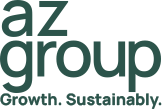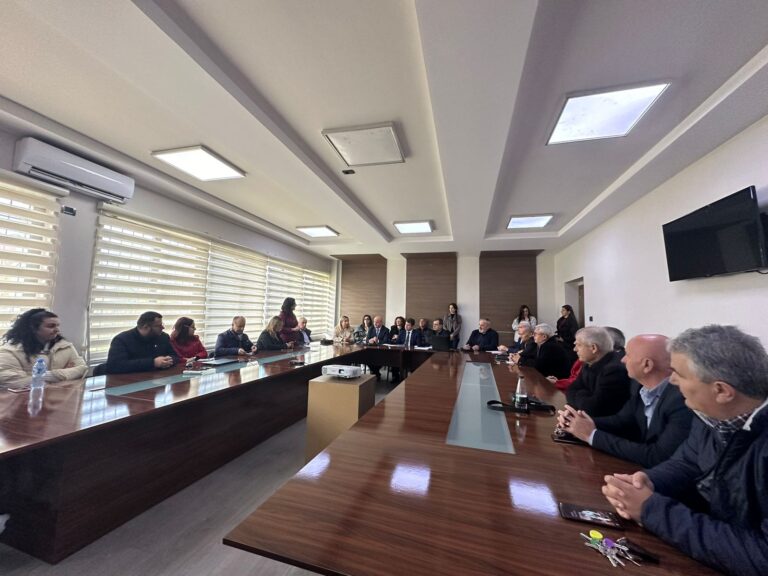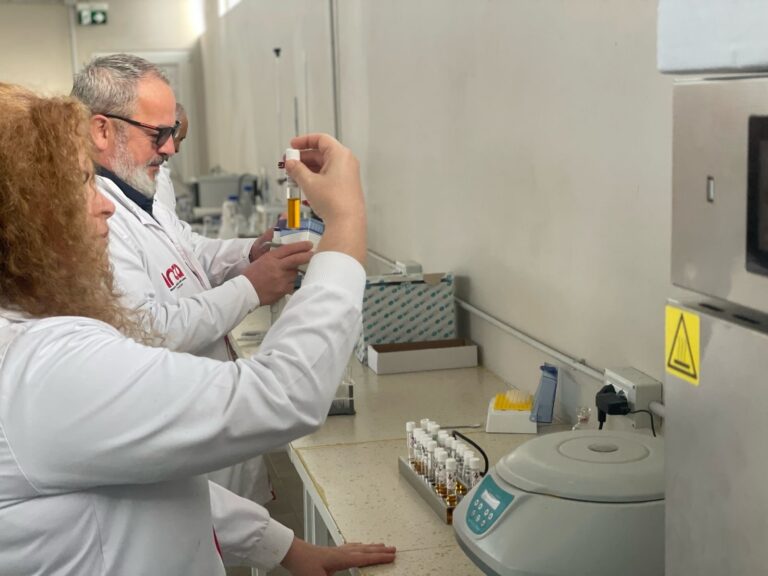- AZ Group
The employment of a team of scientific researchers led by Dr. Hitendra Meta has enabled AZ Group’s production facility in Lezhë to reach a new level in the value chain, with key products for the pharmaceutical market.
Heparin, a basic drug in the pharmaceutical market for blood thinning, is now being produced in Lezha. A team of scientific researchers, who have been employed by an AZ Group company for months, have enabled the processing of pig intestines, whose mucus, after undergoing several chemical processes, serves as the raw material for the production of the blood thinner. The fluids obtained from the processing of the intestines produce several other by-products, the most important of which is NutriVive AminoPlus, a natural organic bio-stimulant specifically for organic farming, which increases yield by at least 20% and significantly reduces the use of pesticides. In parallel, animal feed and several other products that serve the pharmaceutical industry are produced. The company has entered a new investment phase this year, aiming to realize the entire production cycle of Heparin directly per ampoule.
Mr. Alban Zusi and his sons, Drini and Enio, who returned from higher studies in the field of business abroad, aim to take industrial production to another level, based on scientific research and implementing circular economy practices. The new products have already been patented, have passed the testing phases and are on the market.
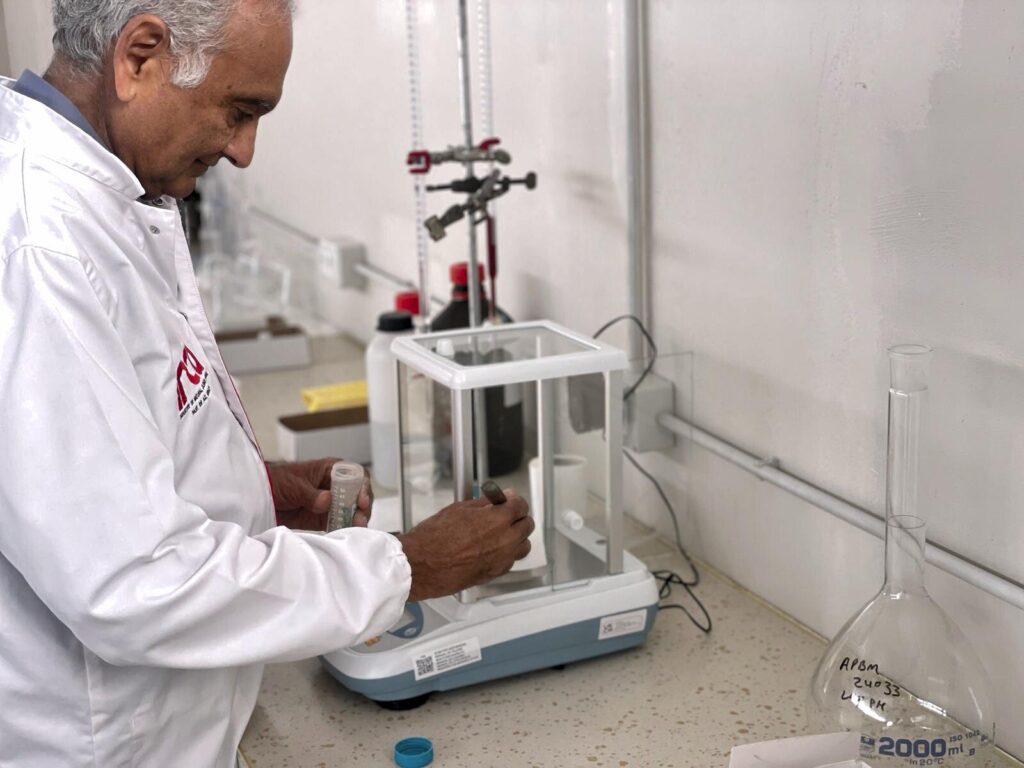
Innovation, a way out of the crisis
The AZ Group company was going through a difficult period in 2023, when the fall of the Euro was bringing huge losses and emigration had shrunk the workforce. For more than two decades, the Zusi family had set up a processing plant for animal entrails that serve as raw material for sausage factories, with Austria as the main market. The Euro crisis presented the company with challenges in diversifying its activity. A chance meeting at a fair with some scientific researchers accelerated the plan to bring the industry to another level. Ilir, a chemistry professor with a PhD, returned from Italy to work at the AZ Group company. A team of five researchers and chemists started work in the laboratory that was specially set up near the factory. Now, the factory’s two new plants produce three pharmaceutical products, Heparin, Bilirubin and Heparinoids, and many other by-products for animals and agriculture. The scientific team intends to further expand the production base of by-products that serve the cosmetics industry. The remains of slaughtered animals, chickens that died from bird flu, after going through many processing cycles in plants, produce a series of valuable products on the market.
After many years of experience in the field of industry, Mr. Zusi has realized that investments in human resources bring a very high return. In just one year of work, the team of scientific researchers has developed the production of high-value products on the market, for which demand is growing and profits are guaranteed.
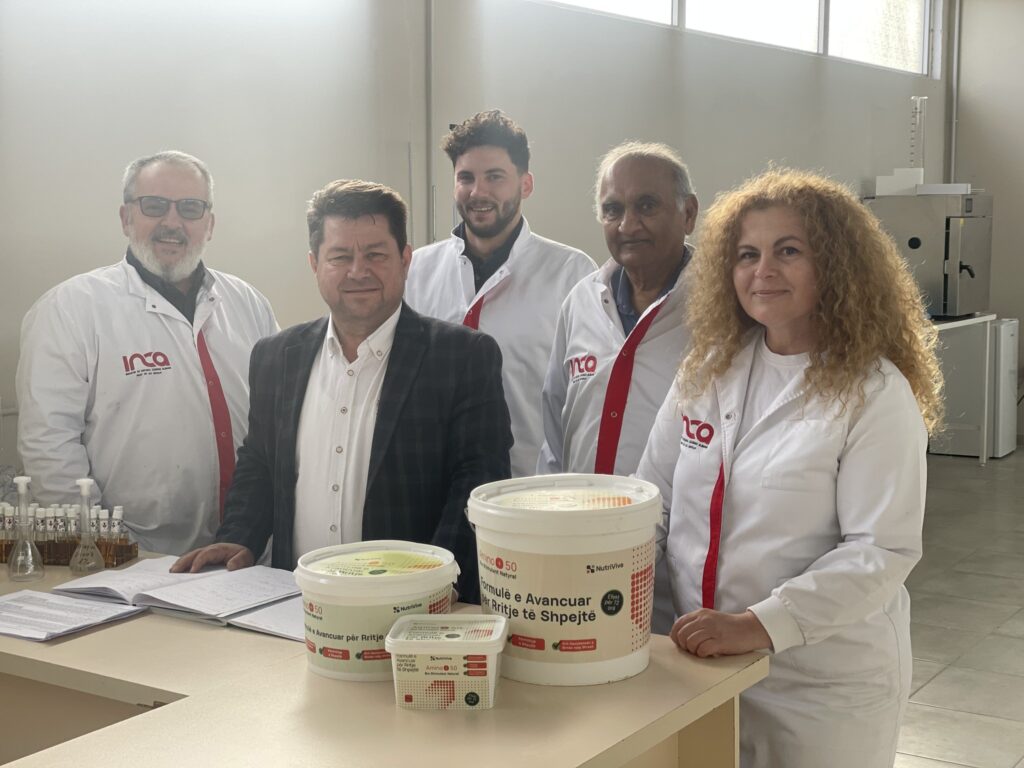
The transformation that came from innovation
Innovation has contributed to the growth of Albanian pharmaceutical exports.
With the weakening of the Euro and the reduction of cheap labor, the Albanian industry needs to move up the value chain to ensure continuity. Over the past two years, hundreds of small and medium-sized garment and footwear manufacturing units for export have ceased operations, unable to withstand the losses caused by the exchange rate and declining foreign demand.
Many factories have explored new solutions to remain in the market. One of the largest footwear manufacturers, ProDyn, shifted its production toward luxury brands. For nearly two years, the company has been producing shoes for Prada and other above-average brands. Some companies have completed their transition and increased innovative investments in their workflows, reducing costs and improving quality.
As a country located close to Europe’s developed markets, Albania has the potential to produce high-value goods. Mr. Zusi states that the country has the potential to further develop its industry, especially the agro-industry, where agriculture is a highly promising sector for early organic production.
Most agricultural inputs are imported and often not safe, so there is significant room for domestic production in this field.
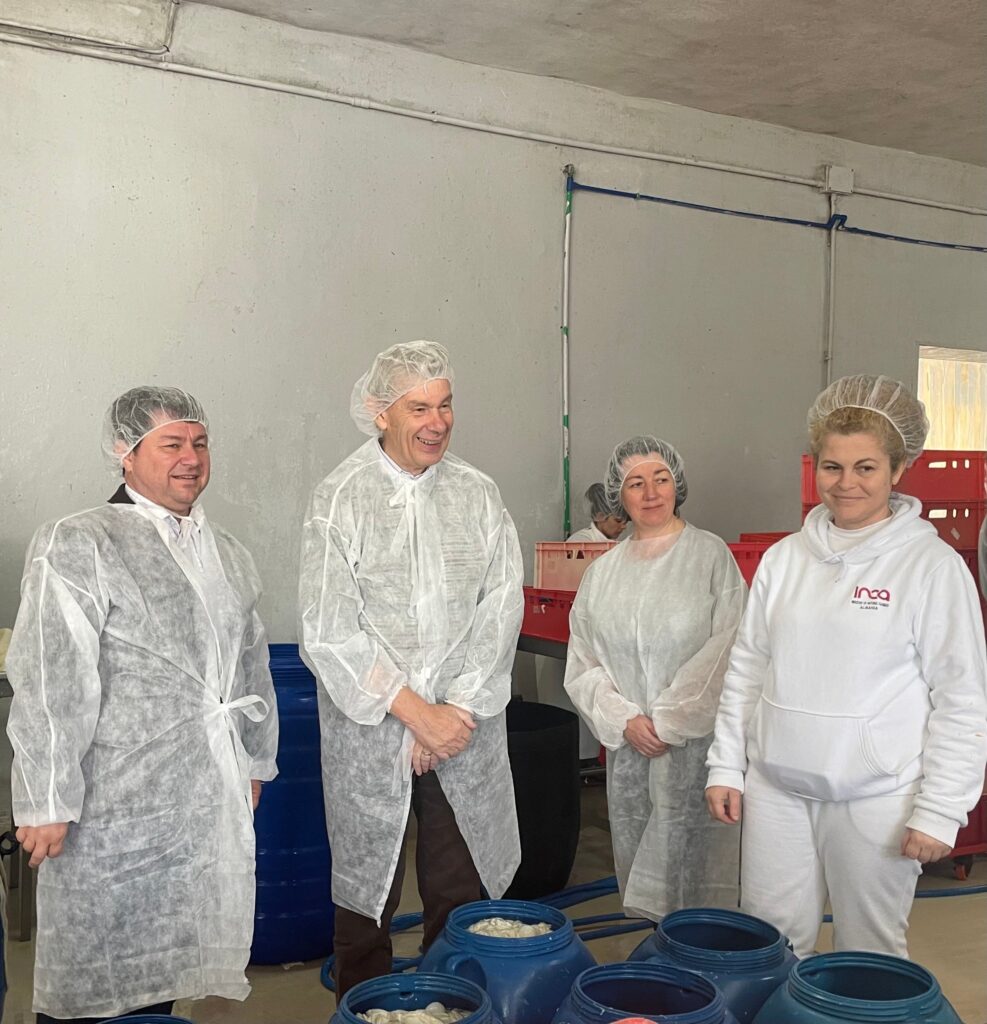
Production according to the circular economy model
The European Union is strongly supporting the new circular economy model, which returns waste to products, as opposed to the current linear model where resources are consumed, generating waste that is not used and creates pollution.
Until 2015, animal entrails, mainly intestines throughout the country, were treated as waste in landfills, were the main pollutants and sources of infections in urban areas, especially in Tirana. They were often thrown into the bins along with other waste.
The company INCA, part of AZ Group, which supplies the domestic and foreign market with natural parts for the production of sausage, began to collect slaughterhouse waste, giving it an economic value.
The general coordinator of AZ Group, Drini Zusi, said that in recent years there have been three companies that handle the processing of animal waste, where their final products are destined for various industries, starting from pharmaceuticals to organic fertilizers for agriculture.
The first company, INCA (Industry of Natural Casings Albania), processes animal by-products intended for human consumption, such as natural casings, which are used as raw materials for the sausage industry.
The investment was completed in 2020, where all other by-products are processed, which cannot be used for human consumption or for pets. Beyond by-products from the meat processing industry, the company also processes any type of waste from the fish or poultry processing industry. Their processing in a closed cycle produces animal protein and fat, which are used as feed for the breeding industry, or as biodiesel in the hydrocarbon industry, said Zusi. Two of the companies part of INCA derive 100% of their income from waste processing.
The company was created as part of AZ Group’s plans to expand its influence in the Balkan Region. AZ Group processes tons of animal by-products per year, in the process of which it has become one of the companies with the best environmental impact position. AZ is the only company in Albania that fully applies the circular economy business model.
In the last year, AZ Pharma has successfully produced and patented three raw materials for the pharmaceutical industry.
The company has carried out production based entirely on the circular economy, also providing the necessary electricity for the factory from photovoltaic plants in the premises of the industrial park.
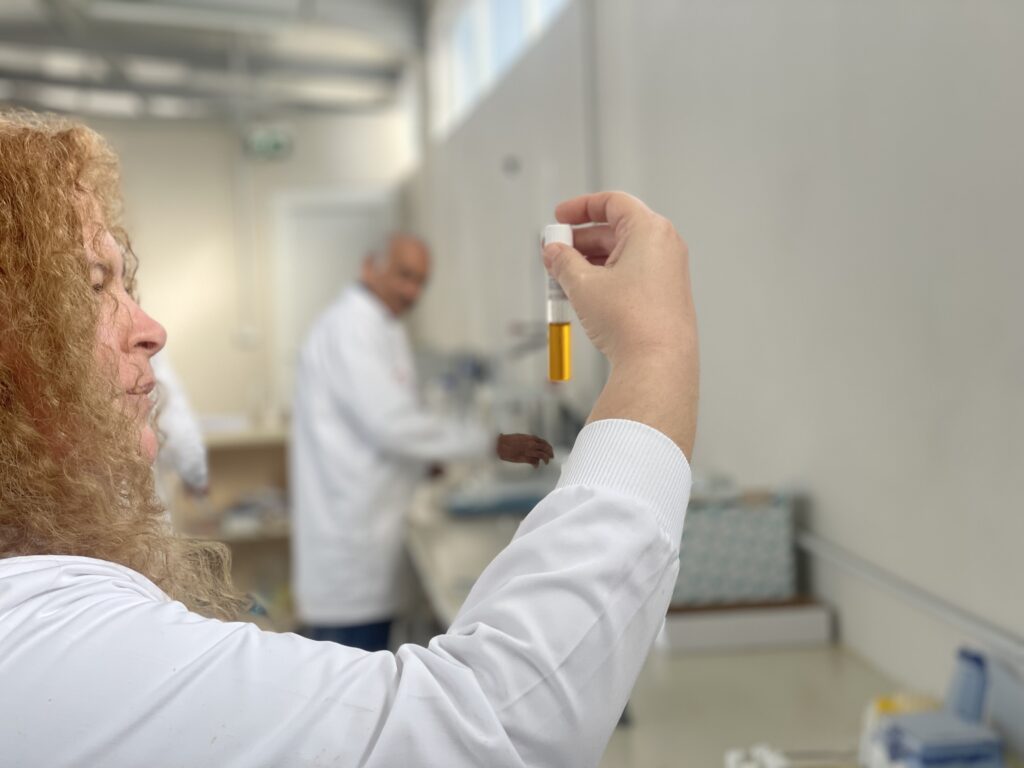
Fivefold increase in activity by 2030
By expanding production in high-value products in the pharmaceutical industry, AZ Group executives aim to fivefold increase in revenue from the activity by 2030. The foundation of growth will be innovation and investments in human capital. The number of research employees will increase, as the aim is to further expand the base of pharmaceutical by-products, especially in the field of cosmetics.
The natural organic bio-stimulant NutriVive AminoPlus is the third product developed thanks to scientific research in the AZ Group laboratory, after two pharmaceutical products that are already exported to foreign markets.
Mr. Zusi says that scientific research to create innovative products and advanced solutions should be the focus of every Albanian industry, as a way to improve the quality of the products that Albanian society consumes, but also as a way to gain competitive advantages in world markets.
This article was originally published by Monitor.al on January 31, 2025. You can read the original publication here: https://monitor.al/history-business-innovation-as-a-model-for-overcoming-the-crisis .
All copyright belongs to Monitor.al.
